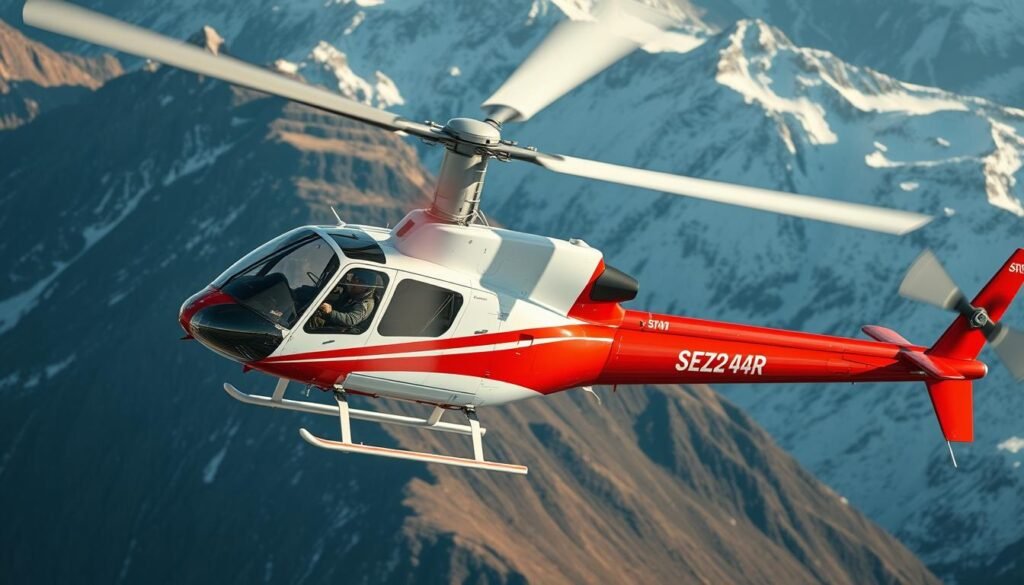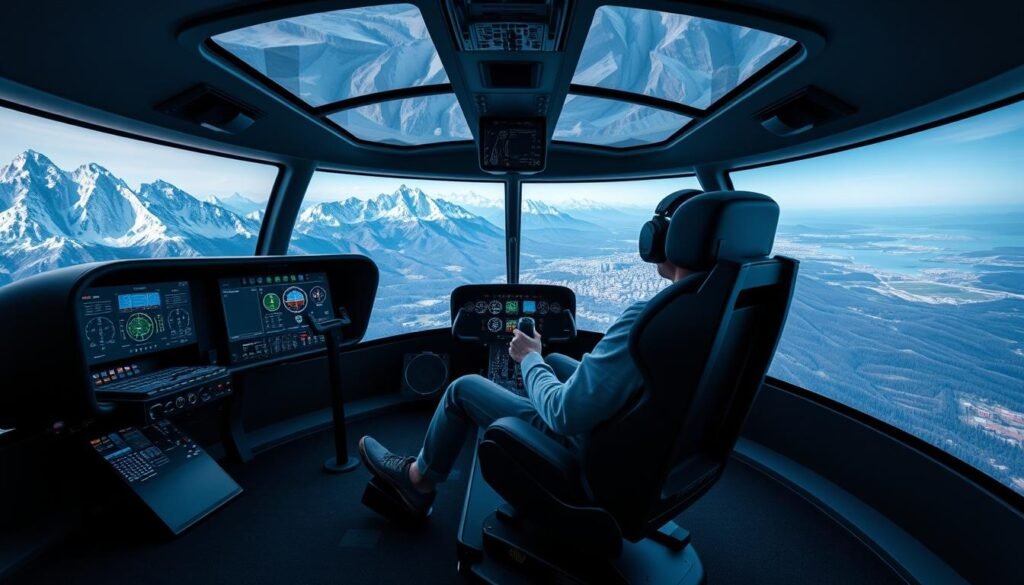Your first year as a commercial helicopter pilot is a significant step in your aviation career, filled with learning experiences, challenges, and personal growth. Whether you’re flying in tourism, emergency medical services (EMS), or offshore transport, your initial experiences will shape your future in the industry. In this article, we’ll explore what to expect in your first year, from day-to-day duties to the challenges you’ll face and the skills you’ll develop.
1. Building Flight Hours and Experience
Your first year as a commercial helicopter pilot will likely focus on accumulating flight hours and gaining experience. While you’ll have your commercial license, the real-world experience of flying in different conditions and performing various tasks will be crucial to your career progression.
What to Expect:
- Entry-Level Jobs: Many pilots start in entry-level positions, such as flight instruction, tourism, or utility work. These jobs provide consistent flight time and help you gain hours.
- Flight Time: Expect to fly regularly, although the number of flight hours can vary depending on the industry and season. In tourism, for example, you may fly frequently during peak seasons but have less flight time in the off-season.
- Developing Skills: You’ll refine key skills like hovering, landing in confined spaces, and navigating in different weather conditions.
Tip: Be open to taking on different types of flying jobs to build a diverse range of experience and increase your total flight hours.
2. Learning the Realities of the Job
Commercial helicopter flying is vastly different from what you may have learned during flight school. You’ll quickly learn how to apply the skills you were taught to real-world situations, which often involve unpredictable variables like weather, passenger needs, or operational constraints.
What to Expect:
- Adaptability: You’ll need to adjust to changing situations, such as sudden weather shifts, flight delays, or emergency situations.
- Communication: As a new commercial pilot, you’ll be communicating with air traffic control (ATC), other pilots, and sometimes ground crews or medical personnel, depending on your sector.
- Passenger Management: If you’re working in tourism or corporate transport, interacting with passengers and ensuring their safety and comfort will be a key part of your job.
Tip: Be prepared for dynamic environments and always maintain a professional demeanor, especially when dealing with passengers or unexpected challenges.
3. Developing Time Management and Stress-Handling Skills
The first year of your career may feel overwhelming as you juggle multiple responsibilities and long working hours. Managing your time effectively and learning to cope with the stress that comes with flying are crucial to your success and well-being.
What to Expect:
- Long Shifts: Depending on the industry, you might work long shifts or irregular hours, especially in fields like EMS or offshore transport, where 12-hour shifts or multi-day assignments are common.
- Tight Schedules: You may be required to stick to strict schedules, especially in sectors like tourism or corporate transport, where passengers expect prompt service.
- Stressful Situations: Flying in challenging conditions, responding to emergencies, or managing unexpected mechanical issues will test your ability to remain calm and focused.
Tip: Practice time management techniques and stress-reducing activities, such as mindfulness or regular exercise, to help maintain balance during busy or high-stress periods.
4. Gaining Confidence in Your Abilities
The more you fly, the more confident you’ll become in your abilities as a pilot. However, it’s natural to feel nervous or unsure during your first year, especially when flying in new or unfamiliar situations.
What to Expect:
- Early Challenges: You may face difficulties during your initial flights, particularly with hovering, precision landings, or flying in turbulent weather.
- Learning Curve: Every pilot experiences a steep learning curve in their first year. With time and experience, tasks that initially seemed daunting will become second nature.
- Mentorship and Feedback: You’ll likely receive feedback from more experienced pilots or supervisors. Don’t be afraid to ask for advice or guidance to improve your skills.
Tip: Embrace the learning process and view challenges as opportunities for growth. Confidence will come with experience.
5. Building Professional Relationships
In your first year as a commercial helicopter pilot, you’ll begin to build a network of professional contacts that can help you throughout your career. Whether it’s fellow pilots, instructors, or supervisors, forming strong relationships is key to advancing in the industry.
What to Expect:
- Mentors and Peers: Many new pilots find mentors within their first year who can provide valuable advice and career guidance. Your peers can also offer support and share their experiences.
- Networking Opportunities: You’ll have opportunities to connect with industry professionals at aviation events, training sessions, or on the job.
- Building a Reputation: Your performance and professionalism in your first year will help establish your reputation within the industry.
Tip: Stay humble, open to learning, and proactive in building relationships. Your network will become an essential resource as you progress in your career.
6. Adapting to Industry-Specific Requirements
Different industries within helicopter aviation have specific requirements that may take time to adapt to. Whether you’re flying in the EMS, offshore transport, or tourism sectors, each role will come with unique demands and challenges.
What to Expect in Specific Sectors:
- EMS: You’ll need to learn to manage high-pressure situations, as you’ll be transporting critically injured patients and flying in challenging environments.
- Offshore Transport: Pilots in the oil and gas sector often spend extended periods away from home, flying long shifts and landing on offshore oil platforms.
- Tourism: You’ll need to focus on customer service and delivering an enjoyable experience for passengers, as well as adjusting to seasonal demand.
Tip: Take time to learn the specific demands of the industry you’re entering and continuously adapt your skills to meet those needs.
7. Managing Expectations and Career Growth
Your first year as a commercial helicopter pilot is about more than just building hours. It’s about setting realistic expectations for your career and positioning yourself for future growth. While you may not land your dream job immediately, every hour you fly brings you closer to your goals.
What to Expect:
- Starting at the Bottom: Many commercial pilots start in entry-level roles, such as flight instructors or tour pilots, before moving into more specialized or high-paying positions.
- Slow Career Progression: It may take time to accumulate enough flight hours to qualify for higher-paying roles in industries like EMS, SAR, or corporate transport.
- Future Opportunities: With time, as you build flight hours and gain experience, you’ll become eligible for more advanced positions that offer greater responsibility and higher salaries.
Tip: Stay patient and focused on long-term career goals. Your first year is just the beginning, and the experience you gain will open doors to new opportunities.
Conclusion
Your first year as a commercial helicopter pilot will be filled with challenges, learning experiences, and personal growth. As you accumulate flight hours, adapt to the realities of the job, and develop your skills, you’ll gain confidence and set the foundation for a successful career. By managing your expectations, building relationships, and maintaining a commitment to continuous improvement, you’ll position yourself for future success in the aviation industry.
Related Articles
- Women in Helicopter Aviation: Breaking Barriers and Building a Career
- Freelance Helicopter Pilots: How to Build a Successful Career
- Helicopter Pilot Licensing Requirements: A Global Overview
- How to Network and Advance Your Career as a Helicopter Pilot
- What to Expect in Your First Year as a Commercial Helicopter Pilot
More from This Category
- Work-Life Balance for Helicopter Pilots: Managing a Demanding Career
- How to Transition from Fixed-Wing to Helicopter Flying: Tips for Pilots
- The Best Industries for Helicopter Pilots: Job Opportunities Beyond Passenger Transport
- Medical Requirements for Helicopter Pilots: What You Need to Know
- How to Build Flight Hours as a New Helicopter Pilot
- Essential Skills Every Helicopter Pilot Needs to Succeed
- Top Helicopter Pilot Training Schools: How to Choose the Best Program
- Private vs. Commercial Helicopter Pilot: Which Career Path Is Right for You?
- Helicopter Pilot Salary: What You Can Expect at Every Stage of Your Career
- How to Become a Helicopter Pilot: A Step-by-Step Guide



